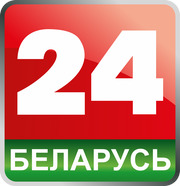tv [untitled] BELARUSTV April 1, 2024 3:05am-3:26am MSK
3:05 am
it was possible to save them, and to completely recreate some objects almost from scratch. in the country , a careful attitude towards historical heritage is enshrined at the legislative level. repair, restoration and maintenance work is carried out on an ongoing basis at so many cultural sites. a set of measures has been developed to preserve intangible manifestations of human creativity included in the state list of historical and cultural values. the unesco world heritage list is regularly updated with belarusian sites, which in turn makes our country more famous and recognizable at the international level. we will talk about the preservation and popularization of the historical and cultural heritage of belarus with the director of the center, academician, doctor of historical sciences, doctor of architecture, professor alexandra mlakotka. let's talk at the museum of ancient belarusian culture, national.
3:07 am
about white russia, this is the ipatsevo chronicle of the late 14th century, it indicates the territory where the three great east slavic rivers have their sources: the dnieper, the western dvina and the volga, and for good reason, therefore, the vitebsk region, which is closer, say, there, has always been associated with some kind of center of consolidation of belarusians, and for this reason it is completely justified. the fact that polotsk can
3:08 am
be considered the ancient capital of the belarusian land, because it is also there, means it is located, and in this way, somewhere around this period , an ethnic community was formed, the belarusian ethnos should be considered relatively young, and this is also remarkable , the uniqueness, in this sense, of the belarusian elite culture is:
3:10 am
3:12 am
and how to convey to modern youth the beauty and uniqueness of the national culture? it is preserved through transmission, it is through a generation, and that’s all, this is where we are sitting now, it reached us until the beginning of the 20th century, until the middle of the 20th century and exists in many places now, that is, this tradition, it, it is alive , here’s popularization, that means what popularization is, well, i’ll just answer from a scientific point of view.
3:14 am
research in the archives of the soviet union, well in particular, st. petersburg, moscow, the baltic archives, our archives, on publications of ancient acts, from all this a lot of material was extracted with mentions for the first time of many villages in belarus, from different regions, 2400 farms, villages, hamlets.
3:17 am
which ensures the organization, coordination and conduct of all types of research in the main areas of natural, technical and human sciences; new scientific and practical centers and unification, historical memory largely shapes the identity of the people, strengthens their unity and sovereignty, this is not only a yes... and our duty is to preserve and pass on this knowledge to the younger generation. remember who you are, be proud of the achievements of your homeland , follow fashion trends in the cultural life of our country. alina nevoina was with you, remember, be cultural - see you in a week, until new cultural meetings.
3:19 am
3:20 am
3:24 am
this is an intellectual show, i know, a journey through the world of questions and answers, guesses and... nikita kazantsev, secondary school number 2 urban village sharkovshchina named after hero of the soviet union kudrino teacher of mathematics and computer science daria yurievna puko. yaroslav starostenko, borkovichi secondary school of the verkhnedvinsky district and geography teacher oksana mikhailovna borisova. roman manushin,
3:25 am
gymnasium number 51 of the city of gomel, teacher of chemistry and biology vasily. vladimirovich semenyuk. ekaterina kuznetsova, gymnasium of the city of svetlogorsk, physics teacher, olga vasilievna ryabtseva. kirill savash, bolsheberestovitsky secondary school named after pretytsky and head military-patriotic education, alexey olegovich kudashov. snezhana koren, golynkovskaya secondary school in zelvinsky district and class teacher, teacher of belarusian language and literature tatyana georgievna pelyavskaya. bogdan stepanov, gymnasium number 41 of the city of minsk named after serebryany, physics teacher yulia petrovna.
19 Views
IN COLLECTIONS
Belarus TV Television Archive
Television Archive  Television Archive News Search Service
Television Archive News Search Service 
Uploaded by TV Archive on

 Live Music Archive
Live Music Archive Librivox Free Audio
Librivox Free Audio Metropolitan Museum
Metropolitan Museum Cleveland Museum of Art
Cleveland Museum of Art Internet Arcade
Internet Arcade Console Living Room
Console Living Room Open Library
Open Library American Libraries
American Libraries TV News
TV News Understanding 9/11
Understanding 9/11
